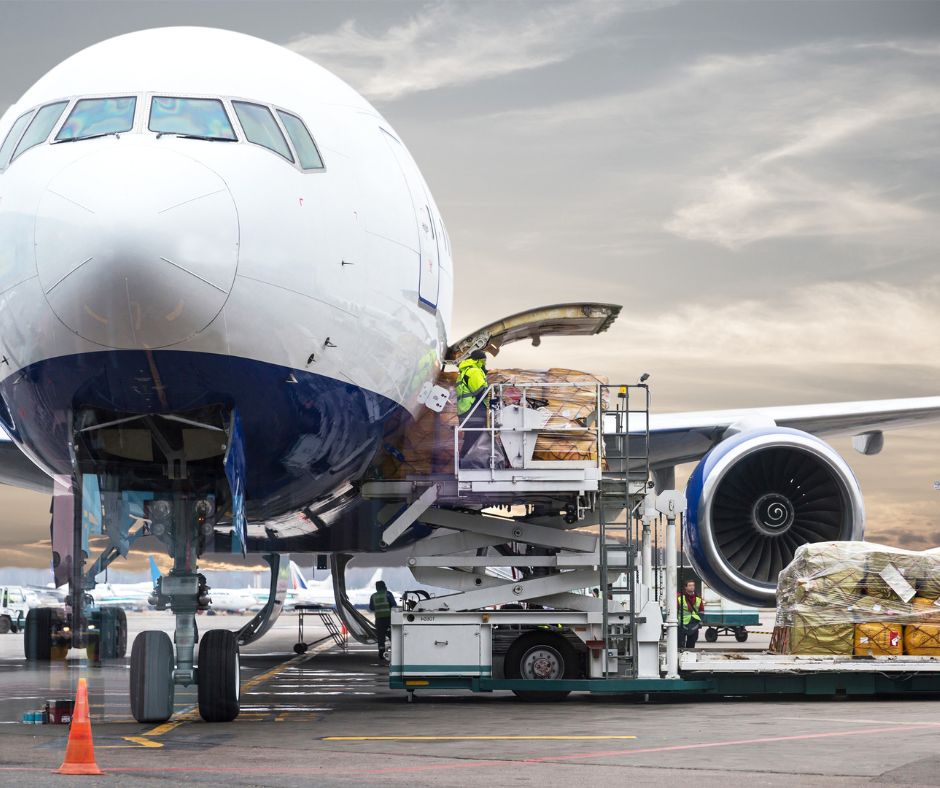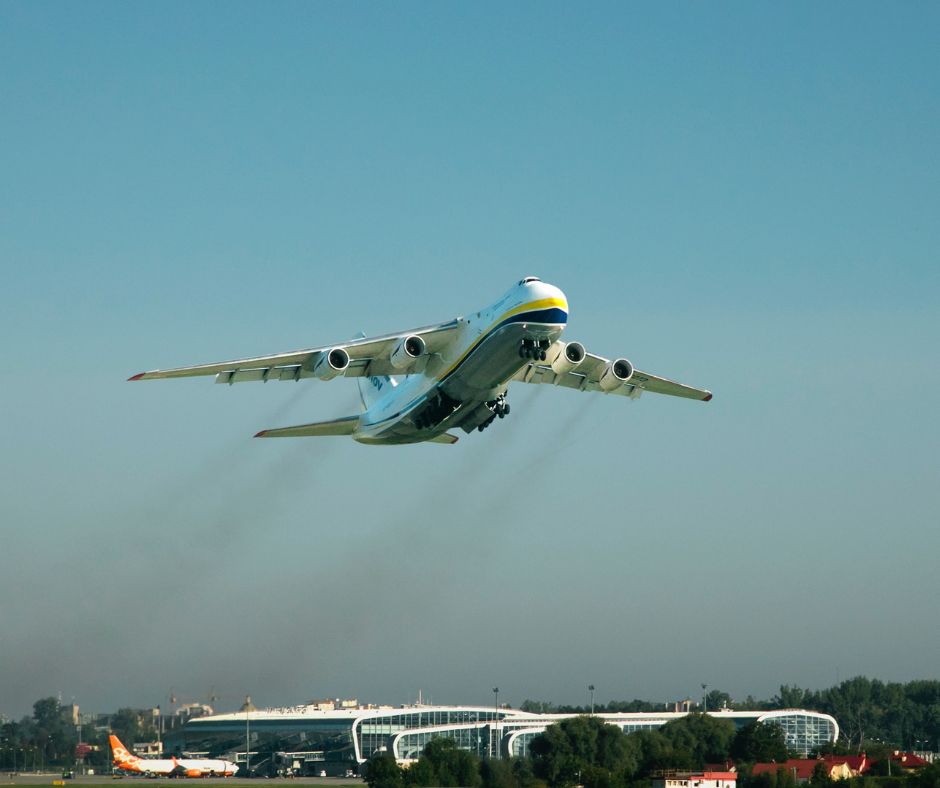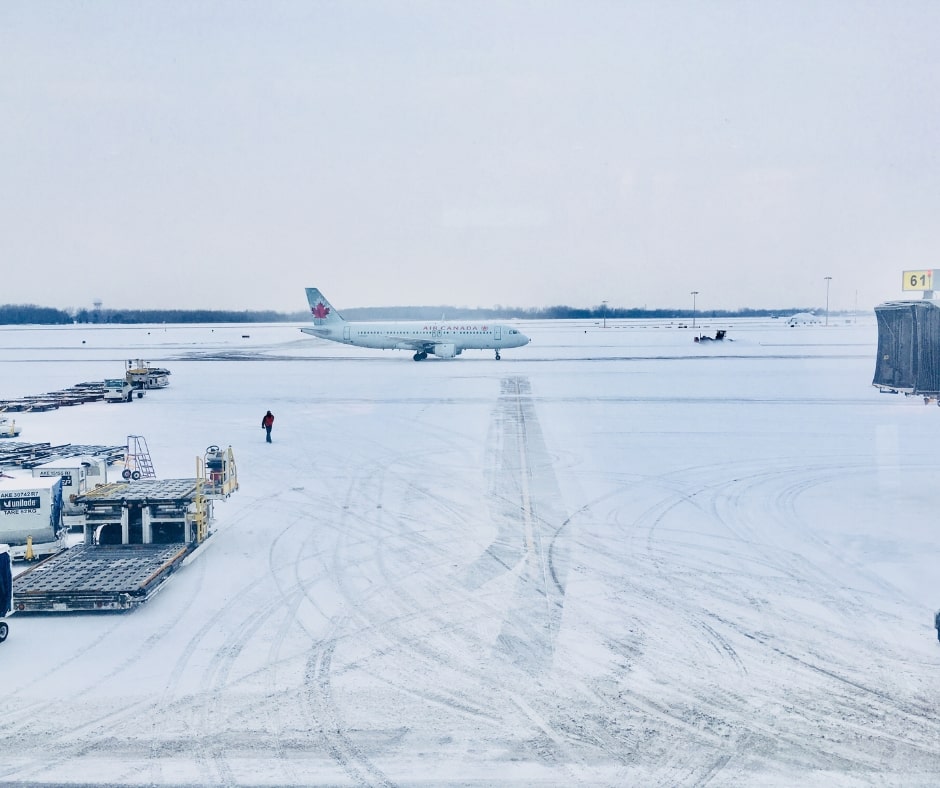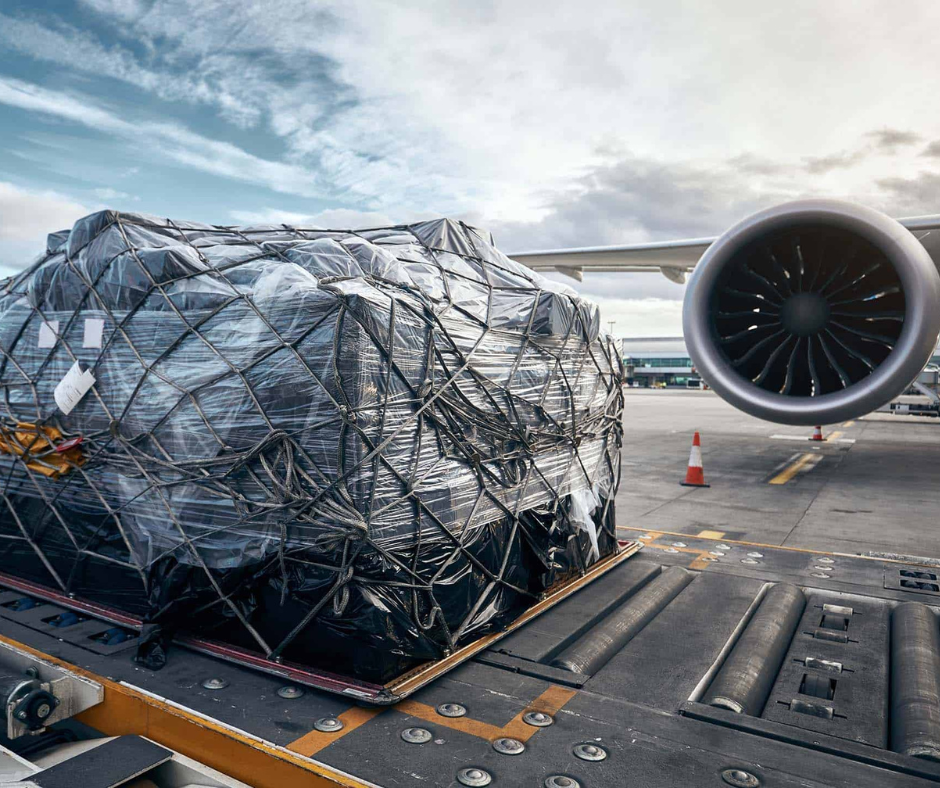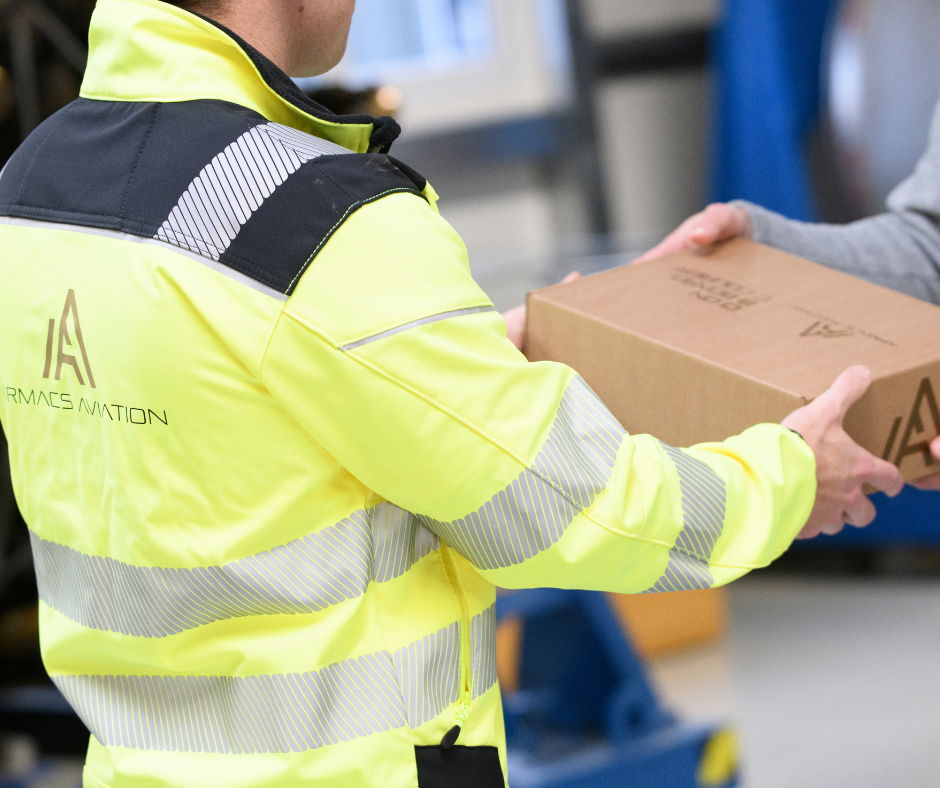The very first air cargo flight occurred in 1910. Since then, air cargo has been responsible for millions of flights, supporting efficient supply chains and allowing businesses to meet the evolving demands of consumers.
Air freight transport connects markets around the world quickly and efficiently by ensuring the smooth and rapid movement of goods between destinations. The global economy is dependent on air cargo, and it is responsible for transporting over £4.8 trillion ($6 trillion) worth of goods.
Let’s take a closer look at its role in the global supply chain and the myriad of benefits it holds.
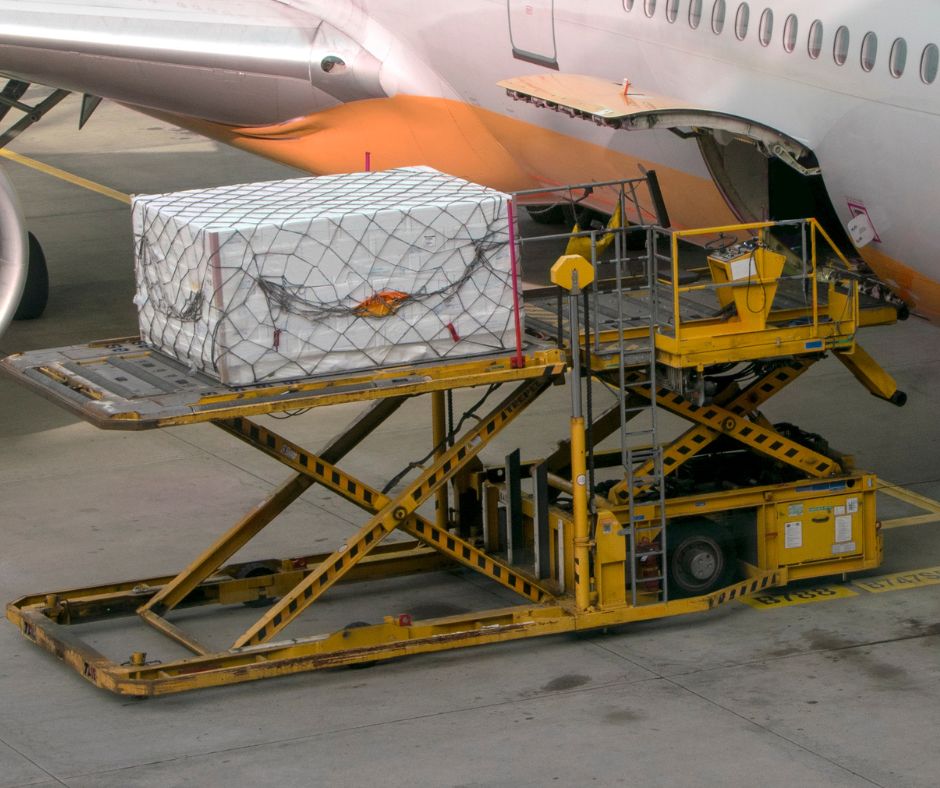
What is the role of air cargo in the supply chain?
Air freight transport facilitates the movement of goods from manufacturers to consumers, making it an essential part of the supply chain. It enables companies to meet production schedules and deliver products to where they need to be, when they need to be there. Here are some key aspects of air cargo’s role in the supply chain:
- Quick and efficient: Compared to other modes of transporting goods, air cargo is a far faster solution. Known for its unparalleled speed and reliability, it’s the top choice for transporting high-value, perishable, or time-sensitive goods.
- Connectivity across the globe: Air cargo networks cross the entire globe, connecting distant markets and allowing businesses to reach customers in remote locations. This global reach is especially important for industries like pharmaceuticals, where shipments often need to be delivered quickly and to remote places.
- Supply chain resilience: Air cargo provides a level of resilience for supply chains by offering an alternative means of transportation in case of disruptions in other modes of transport, such as sea or road. When there’s an unexpected event, such as a natural disaster or geopolitical tensions, it’s possible that air freight transport can go ahead in the event when sea or land transportation cannot.
Why is air transport important in the chain of distribution?
The chain of distribution refers to the sequence of businesses involved in the transportation, storage, and delivery of products and services to customers. Each part of the chain plays a role in getting products from manufacturers to retailers and, ultimately, into the hands of consumers. Air transport plays a crucial role in this chain.
For one, air cargo enables businesses to meet consumer expectations for fast and reliable delivery. Given that we’re living in an era defined by e-commerce, where companies such as Amazon reign supreme and customers are increasingly demanding same-day or next-day delivery, air cargo is only going to become more and more essential.
Air cargo networks connect the world, ensuring that products can reach far-away markets quickly and with ease. For businesses looking to expand into international markets or serve customers in remote areas, this is especially important.
Why is air cargo important in logistics?
Logistics refers to the detailed organisation of complex operations, such as the many different elements that need to come together in harmony in order for supply chains to run smoothly. These are some of the reasons why air cargo plays a key role in logistics:
- Expedited shipping: Air cargo can move products from one end of the world to another within hours, which is a feat that other modes of transportation cannot match. This speed is invaluable when managing just-in-time inventory systems and meeting tight production schedules, ensuring supply chain operations run smoothly.
- Reliable schedules: Airlines typically operate on fixed schedules, making it easier for businesses to plan their supply chain operations with precision. For industries with strict delivery deadlines, such as the automotive or aerospace sectors, reliability is integral.
- Reduced storage costs: Air freight transports allow for tighter logistics, meaning businesses can save money on warehouse storage costs, as they don’t have to keep as much stock.
What are the benefits of air cargo supply chain security?
To keep cargo safe during air transit, robust security measures are implemented. This is of paramount importance, as it ensures the flow of goods is protected and all individuals involved in the logistics are safe. Some key benefits of air cargo supply chain security include:
- Preventing theft and damage: By implementing enhanced security measures for air cargo, there is a reduced risk of theft and damage to goods during transit.
- Ensuring compliance with regulations: It’s important that strict security protocols are followed so that companies comply with international and national regulations, something that is essential for cross-border trade and the movement of regulated goods.
- Counterterrorism measures: Robust security helps to prevent the use of cargo planes as a means for terrorist attacks. By screening cargo for potentially dangerous items, such as bombs and other weapons, security forces can mitigate this risk.
Here at Airmacs Aviation, we leverage our extensive global network of cargo aircraft operators to help businesses transport shipments across the globe. As such, we help to ensure supply chain operations run smoothly and consumers receive goods in the expected time frame. If you’re looking for an efficient and reliable air cargo charter solution, don’t hesitate to get in touch.
